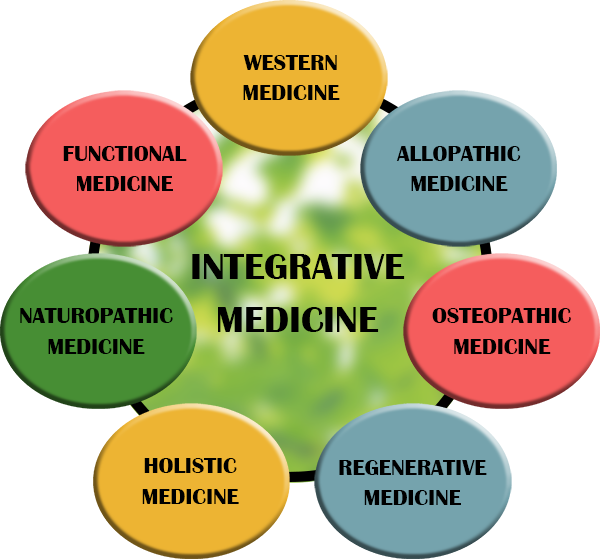Integrative medicine is a philosophy that is considerably different from a blanket endorsement of alternative medicine.
The use of synthetic drugs and surgery to treat health conditions is generally known as, simply, "medicine." Today, this system is increasingly being termed "conventional medicine." This is the kind of medicine we encounter in hospitals and clinics. Often both expensive and invasive, but is also very important in many instances; for example, handling emergency conditions such as massive injury or a life-threatening stroke.
Any therapy that is typically excluded by conventional medicine, and that patients use instead of conventional medicine, is termed "alternative medicine." It's a catch-all term that includes many practices ranging from acupuncture to naturopathy to homeopathy.

So, Integrative Medicine combines mainstream medical therapies and complementary and alternate medical therapies for which there is some high-quality scientific evidence of safety and effectiveness."
Now, in other words, integrative medicine "cherry picks" the very best, scientifically validated therapies from both conventional and complementary and alternative medical systems.
Integrative medicine is a healing-oriented medicine that takes account of the whole person (body, mind, and spirit). It emphasizes the therapeutic relationship and makes use of all appropriate therapies, both conventional and alternative.
The principles of integrative medicine:
- A partnership between patient and practitioner in the therapeutic process.
- Appropriate use of conventional and alternative methods to facilitate the body's innate healing process.
- Consideration of all factors that influence health, wellness and disease, including mind, body, spirit. The recognition that the whole is greater than the sum of all its parts.
- A philosophy that neither rejects conventional medicine nor accepts alternative therapies uncritically.
